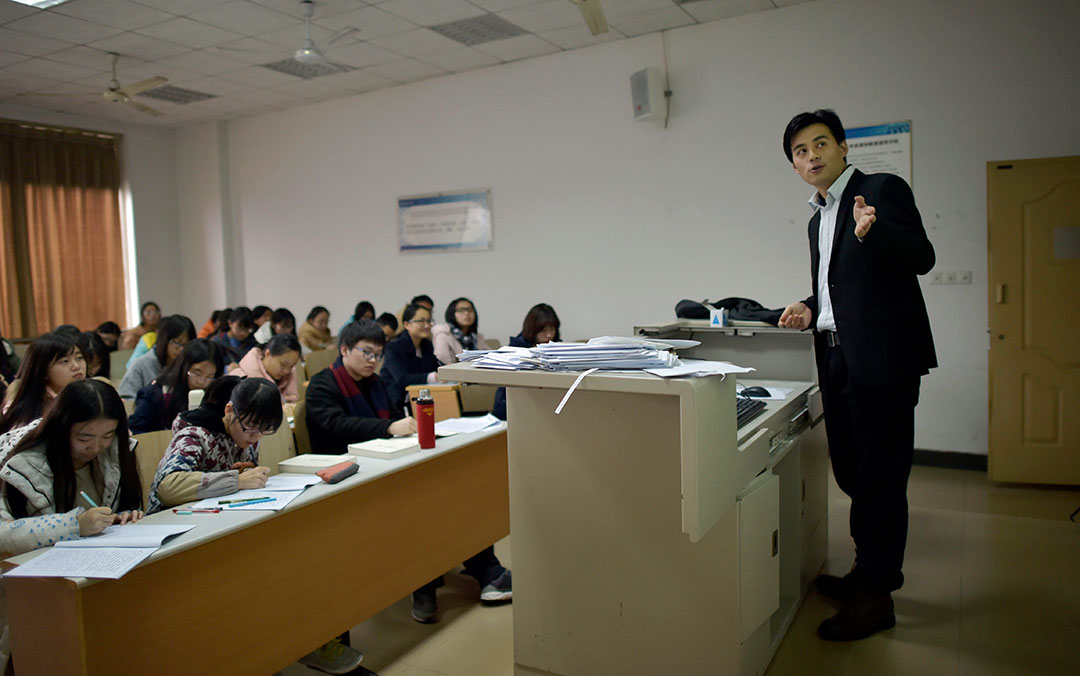Malicious tipoffs stifle academic freedom in PRC, analysts say

Dahai Han/Voice of America News
In recent years, a growing number of college professors in the People’s Republic of China (PRC) have been dismissed, fired or even arrested and sentenced to prison after being turned into authorities by classroom informants for “inappropriate speech.”
Analysts say the worrying trend of what they call “malicious reporting” in the PRC’s universities is becoming increasingly rampant. They say the practice not only limits the space for freedom of thought and expression, but also is jeopardizing the quality of academic research and discussions.
In early November 2020, renowned Chinese historian and Cold War expert Shen Zhihua was delivering a live-streamed speech at an academic seminar on the rise and fall of the Soviet Union, but an hour into the lecture, the feed was suddenly cut off. It remains unclear what Shen may have said that was offensive, and the seminar host, Capital Normal University in Beijing, has yet to put the video back online.
In a statement, the university blamed a malicious tipoff from students or individuals who tattle on teachers when they make statements or share views that are perceived as challenging the Chinese Communist ’Party’s (CCP’s) official narratives or its leader, General Secretary Xi Jinping. (Pictured: A teacher gives a history lesson to his students at Southwest University in Chongqing, China.)
The university called the complaint a clear violation of academic discussion and freedom of speech. It also noted that the lecture was the seventh in a “Four Histories” series and that, far from being a subversive speech, the talk was an attempt by the school to carry out the spirit of Xi’s ’speech on the study of the “Four Histories.”
The “Four Histories” refers to the history of the party, the PRC, reform and opening up, and the development of socialism.
When asked by Voice of America (VOA) about the incident, Shen laughed and said he doesn’t pay much attention to criticism online.
“Chinese netizens … they will report you when they hear anything that they are not happy about,” he said.
Professor Yang Shaozheng, who was fired after being spied on and after his students reported him for remarks criticizing the CCP in 2018, told VOA that the party deprives people of their freedom of speech even though it is guaranteed in the country’s constitution.
“On the surface, it’s these malicious reporters who are annoying and disgusting, but if they didn’t have the environment, they wouldn’t be able to get away with it even if they wanted to make a malicious report,” he said.
You Shengdong, another victim of this practice, said malicious tipoffs are prevalent because many universities in the PRC deploy student informers as watchdogs against their teachers to eliminate dissent and turn universities into party strongholds in a throwback to the Mao Zedong era.
Many universities have openly recruited informers to supervise teachers. These monitors are required to report teachers who spread superstitions, Western values and criticism of the party’s principles, and to ensure that topics classified as “seven things to not talk about” as proposed by Xi in 2013 are not mentioned in classrooms, including universal values and the CCP’s historical mistakes.
In its regulations for student informants, Xiantao Vocational College in Hubei province states that they should report teachers whose behavior jeopardizes national interests. The school said teachers should also be reported if their speech or behavior contradicts CCP policies or violates the party’s discipline.
Adrianna Zhang contributed to this report.




